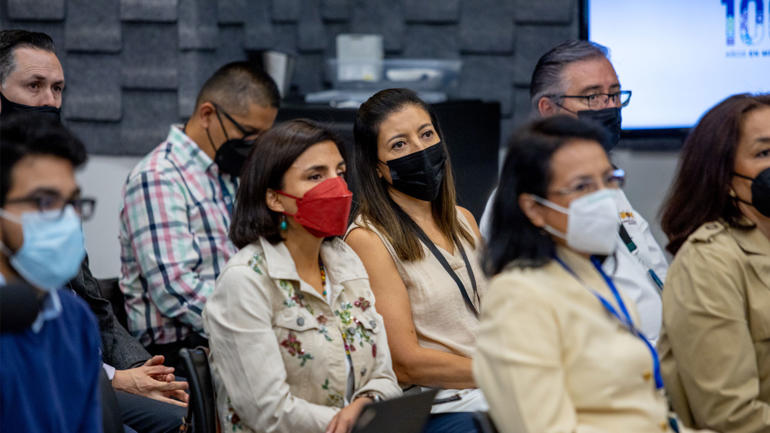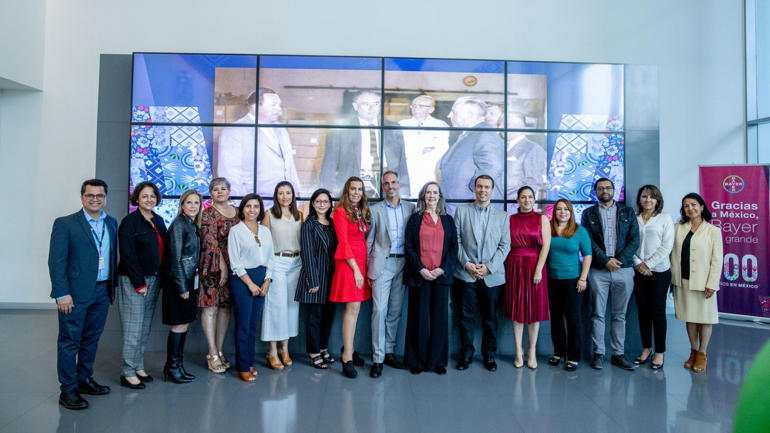This is one of a series of case studies developed by WBCSD and the Just Rural Transition to examine how large agribusinesses empower and engage SME suppliers and stakeholders to reach their sustainability goals. These examine the business case for supplier empowerment; what good policy looks like; and challenges and solutions involved in engaging suppliers. The cases identify best practices around how procurement can support a company’s sustainability priorities and performance. Click here for a synthesis that identifies key themes and recommended action from the series of case studies.
Background and business case
Develop a diverse and sustainable supply chain
Life sciences multinational Bayer is a major player in the health care and agriculture sector, with annual turnover of €44bn in 2021. The Bayer Group comprises 374 consolidated companies in 83 countries, employing just under 100,000 people.
Such a business requires a diverse and sustainable supplier base: the company aims to have suppliers that reflect the diversity of its consumers around the world. Bayer wants to advance the economic growth of underrepresented communities as these have the potential to strengthen the company’s supply chains and be more in tune with the preferences of its consumers.
Bayer is working to embed the Sustainable Development Goals in all its operations and is committed to encouraging sustainable economic development for those who have previously lacked opportunities.
Solution: Supplier Inclusion and Diversity Program
Commitment to levelling up opportunities
Bayer’s Supplier Inclusion and Diversity Program includes a commitment to the economic growth and advancement of groups that are underrepresented in its supplier base. The company aims to provide equitable access to procurement opportunities globally.
Recognizing that historically some people have not been granted full participation in business activities, Bayer has a policy of proactively considering businesses that are majority owned and controlled by women, people with disabilities, LGBT+ people, minority groups or other disadvantaged communities.
Win-win relationships
The company believes that sustaining and growing its business requires a diversity of perspectives and the flexibility to collaborate with a variety of companies. Increasing the diversity of its supplier base by sharing commitments to equity of access also means that the company can improve social and economic outcomes for underrepresented communities.
Bayer works with local partner organizations to identify diverse suppliers and to participate in education, mentoring and networking opportunities to develop these suppliers.
While there is no commitment for any future supplier contracts, the program enables positive social impacts by empowering businesses to be competitive so that they have the capacity to pitch for, and potentially win, business with Bayer.
Case study: Great IDEA initiative for women-owned businesses
Training focus on key business development skills
Partnering with WEConnect International, a global network that specialises in connecting women-owned businesses with potential customers, Bayer has developed the Great IDEA (inclusion, diversity, equality and access) initiative. Initially piloted in Mexico, this is a co-branded online training course, followed up by a period of mentoring by senior Bayer executives. There are plans to extend the program to Brazil and eventually into European markets.
The initiative was designed to give participants access to focused high-level training that will help them acquire knowledge and skills in five key areas for business development: strategy, sales, finance, operations, and human resources.
The pilot initiative’s launch period was from January to March 2022, with asynchronous training provided in February and March. The mentorship program then ran from April to July. In total 134 women-owned companies applied, from which 90 were enrolled into the program. To be eligible for the mentorship part of the program, the companies had to complete the course in full, and 19 did so – with 11 companies eventually chosen as mentees, selected by a committee of four Bayer and two WEConnect International representatives.
Learning from mentors
The mentoring aspect of Great IDEA is designed to not only help the companies involved take advantage of specific tailored business advice from relevant Bayer executives, but also to allow those in the senior Bayer team to gain hands on experience of the sorts of barriers that the program participants have had in growing their businesses and accessing new markets.
The mentors and the companies they mentored were matched up based on company need and mentor experience. Post-program surveys of mentors and the companies confirmed the close relationships that many of them developed. All the mentored companies said that they had either implemented or had plans to implement change in company activity or strategy following the mentorship process.
Summary
Empowering potential suppliers from disadvantaged groups is a key part of Bayer’s strategy to diversify its supplier base through its Supplier Inclusion and Diversity Program, and reflects the company’s alignment with the Sustainable Development Goals. The Great IDEA initiative, piloted in Q1 and Q2 2022 in Mexico, has identified, trained and mentored women-owned businesses to improve their business development capacity and other core business skills.
Bayer plans to expand the Great IDEA program to Brazil and then to European markets. In addition, since the launch of the program, Bayer now has four procurement professionals participating as mentors to businesses owned by underrepresented groups in year-long programs running through to June 2023.


